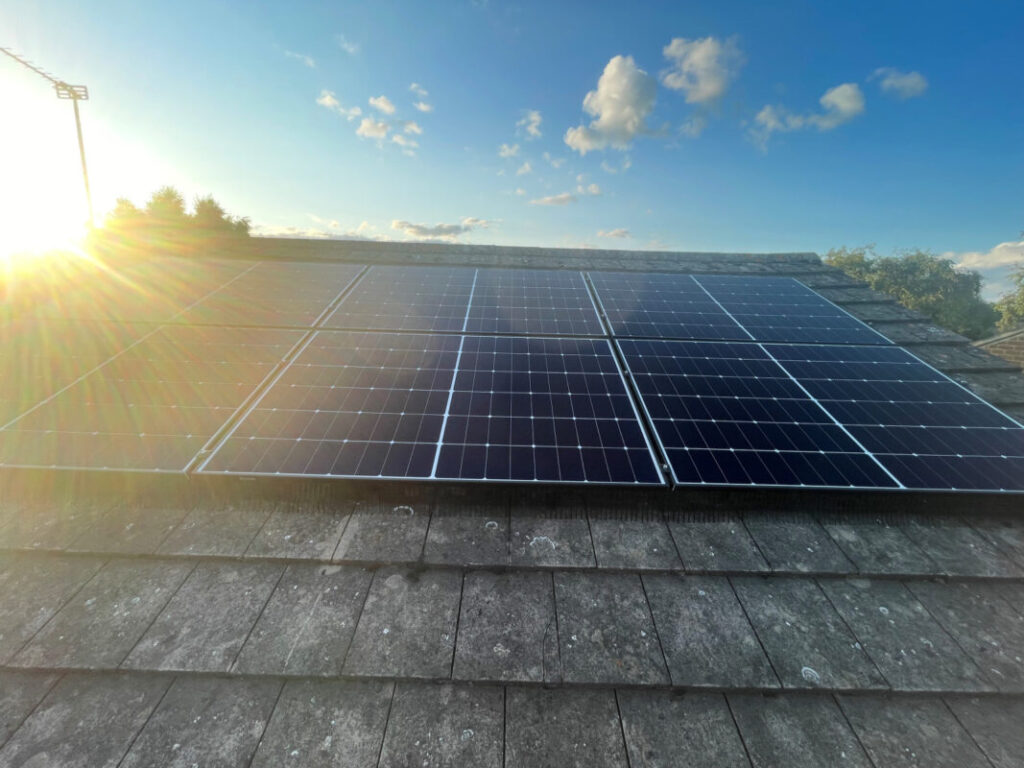Oxfordshire y Council loan supports solar PV for school
 Action on Carbon and Energy in Schools (ACES) has run since June 2023, aiming to help ry-maintained schools reduce their energy usage. Image: Dale Holyland via Oxfordshire ry Council.
Action on Carbon and Energy in Schools (ACES) has run since June 2023, aiming to help ry-maintained schools reduce their energy usage. Image: Dale Holyland via Oxfordshire ry Council.
Sonning Common Primary School will increase its onsite solar photovoltaic (PV) generation capacity, using an interest-free loan of just under £12,000 from Oxfordshire ry Council.
The loan is delivered from a fund of £800,000, under an energy efficiency support service funded by the council and delivered by Oxford Brookes University and Low Carbon Hub. The scheme, Action on Carbon and Energy in Schools (ACES) has run since June 2023, aiming to help ry-maintained schools reduce their energy usage.
The primary school is hoping to install solar PV on its classrooms during the summer holiday. Chris Hirst, headteacher at Sonning Common Primary School, said the school is “thrilled” to add to an existing solar array, and that it is proud to be playing its part in the UK’s transition to net zero.
According to councillor John Howson, Oxfordshire y council cabinet member for children, education and young people’s services, Sonning Common is the second school to make use of the fund in this round of the loan scheme.
The ACES scheme is not solely focused on solar, with the first school to receive a loan during this round, Nettlebed Community School, using its £48,000 allocation to install LED lighting.
Similarly, in May, £530 million of government investment was allocated under the Public Sector Decarbonisation Scheme. Solar was a focus of the provision, with 84 projects receiving funding to install solar panels on public buildings. NEAT Academy Trust in Newcastle-upon-Tyne was awarded just over £4 million to install solar panels. Leeds City Council, meanwhile, received almost £7 million to decarbonise 11 buildings with solar panels, of which nine are educational institutions.
Measures to provide grants specifically for solar projects on schools have been explored. For example, Solar for Schools partnered with National Grid on a £2.7 million venture to fundraise and enable about £10 million worth of solar projects to be installed on schools.
The initiative is part of National Grid’s pledge to help schools in areas of high economic deprivation reach net zero goals. Indeed, with the cost benefit of low carbon energy generation considered, schools’ operational costs can be dramatically cut by the installation of solar arrays.
Indeed, two Birmingham schools that installed solar systems as part of the scheme said that in just one month they saved £3,500, projecting savings of £1.2 million over the solar panels’ operational lifetime.
Providing a solar education
With the secretary of state Ed Miliband recently speaking out against the misconception that solar farms are a threat to national food security, and declaring the government will deliver a “rooftop solar revolution”, education is important.
Not only will school solar panels help meet ambitious targets to triple the UK’s solar capacity by 2030, but they can be a jumping-off point for curriculums. As part of National Grid’s school solar initiative, students in Birmingham participated in hands-on educational workshops, assemblies, and a library of science, technology, engineering and maths (STEM)-related resources covering energy, efficiency, sustainability and economics.
Director of Solar for Schools, Ann Flaherty, said: “We always say, learn from your school buildings not just inside them. By getting solar on the roofs of schools we’re empowering students and helping them see they can do something locally to reduce carbon, that helps nationally to meet targets, and that’s globally helping to reduce our emissions.”
This content was collected from the Internet. If you want to it, please contact grace solar management.